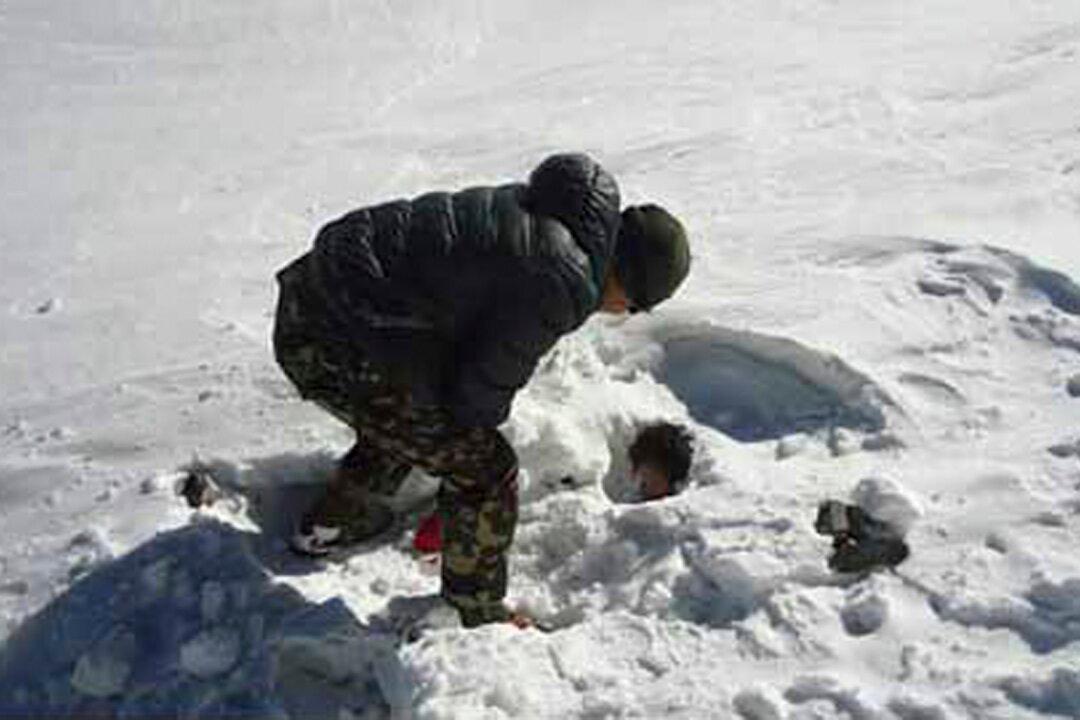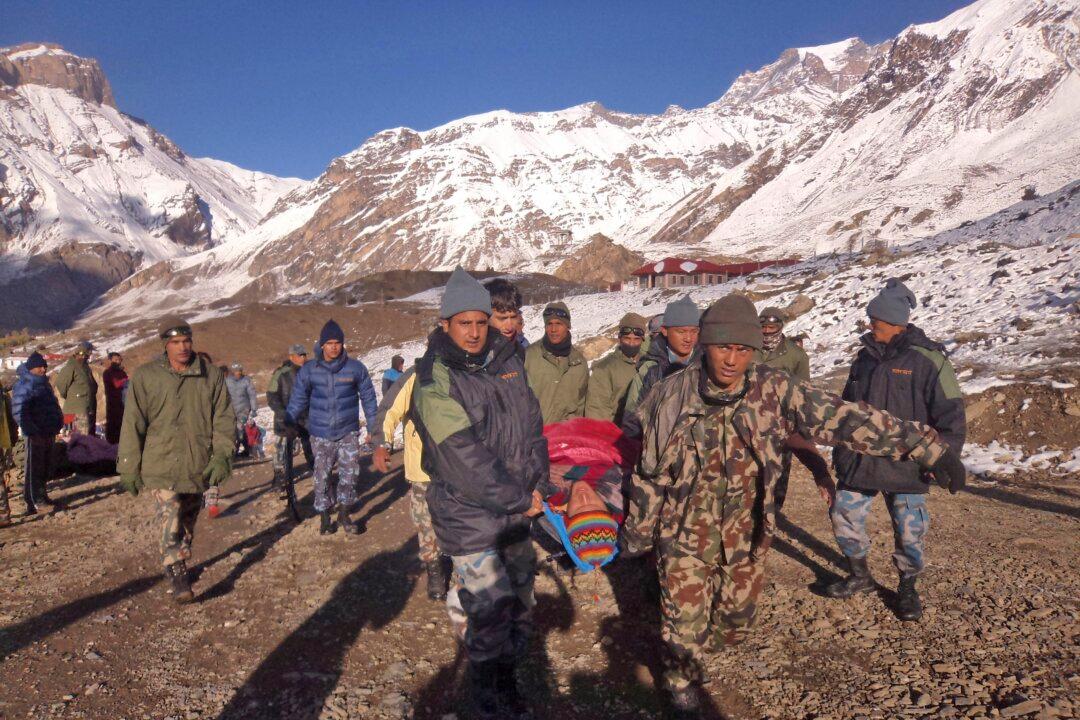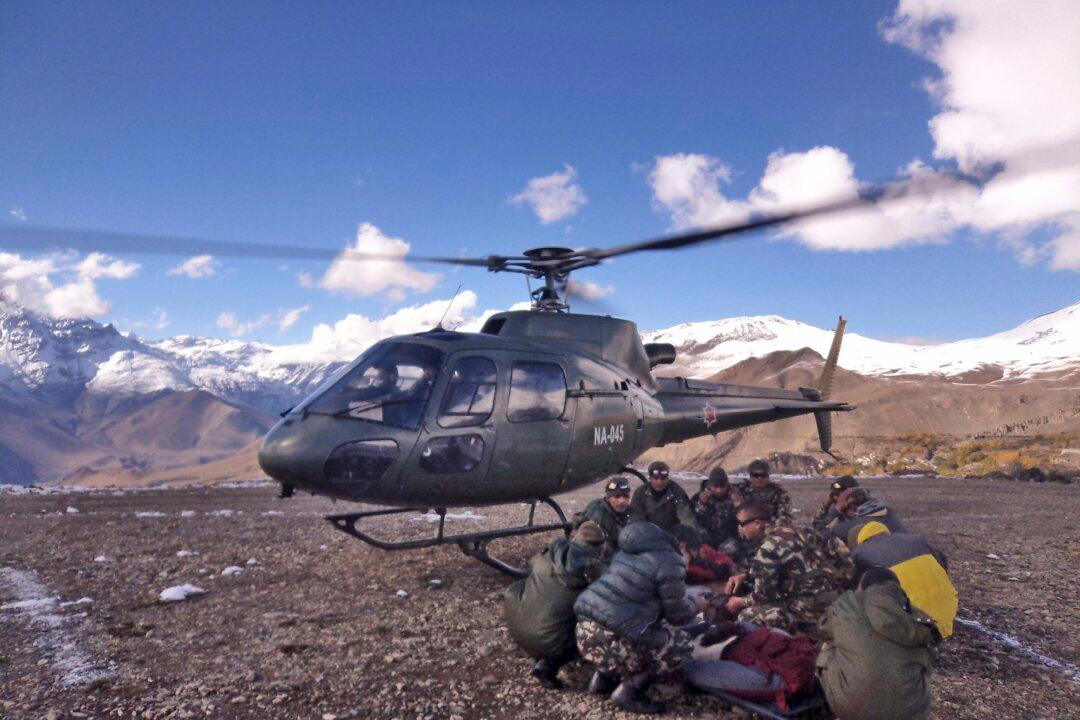KATMANDU, Nepal—Nepalese officials closed a section of a popular Himalayan trekking route Sunday after rescuers, overwhelmed with last week’s snowstorms that killed at least 38 people, had to save new hikers who set out after the blizzards on the same deadly trails.
The dead from the blizzards and avalanches that hit the upper section of the Annapurna trekking circuit in northern Nepal included foreign trekkers, local guides and villagers. Most of the hundreds of trekkers who had been stuck in the snow have been brought to safety, and government official Yama Bahadur Chokhyal said rescue helicopters were winding down flights.
But as the weather cleared, new trekkers began making their way up the same trails, prompting the government to close the route, Chokhyal said. In some sections, the trails were completely hidden beneath the heavy snows.
“Our rescuers and helicopters ended up having to bring down these new people while we were still trying to reach the ones who were stranded by the blizzard,” he said.
“It was burdening and confusing the rescuers,” he said.
So far, 25 bodies have been identified. Eight of the dead were Nepalese, with others from Canada, India, Israel, Slovakia, Poland and Japan. Thirteen others have not yet been identified.
The snowstorms were whipped up by the tail end of a cyclone that hit the Indian coast a few days earlier. Hikers were caught off-guard when the weather changed quickly.
Most of the victims were on or near the Annapurna route, a 220-kilometer (140-mile) collection of trails through the mountain range. The largest number of casualties was among those caught on Thorong La pass, one of the highest points on the circuit.


